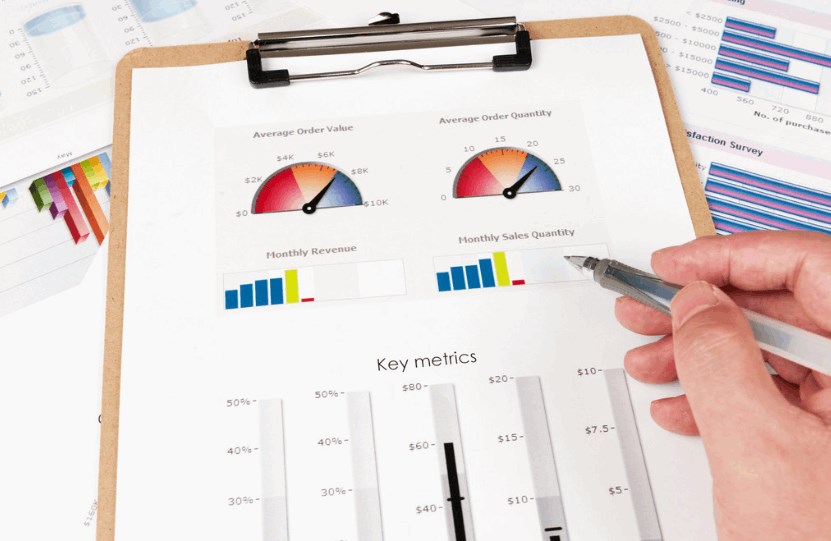Digital PR lets you build sustainable long-lasting relationships. But, it’s only fully effective when you know which metrics to track and when you’re willing to pivot your strategy when needed. In this blog post, we’ll talk about the most important digital PR metrics you should be tracking so that you keep building meaningful relationships for your business. Let’s dive in.
Digital PR Metrics You Should Track

Digital PR is More than Link-Building
Many digital PR specialists consider digital PR to be similar to link-building, but that’s not true. While link-building is an important aspect of digital PR, there’s more to establishing yourself as a reputable brand in the market. Plus, you’d agree that not all backlinks are created equal, so you need to track your site’s backlinks and see if it’s getting relevant and authority links or spammy ones.
Types of Links in Digital PR
There are essentially two broad types of links:
- Built
- Organic
Organic backlinks, as the name suggests, are generated naturally. An example of an organic backlink is another blog owner who likes one of your blog posts and shares it with their audience. Built backlinks involve the active participation of the blog owner. This means reaching out to other blog owners and getting them to provide a link to one of your web pages. Importantly, you should track both types of backlinks.
Tracking Digital PR Success
The first thing you want to consider is what does matter to you most. Is it the brand mentions, media coverage, the quality of the inbound links, or something else? For some, building a reputation is the most important. Whereas, some just want SEO backlinks to rank higher on Google. Let’s talk about the digital PR metrics you should be concerned about.
Digital PR Metrics to Track
Inbound Links (Backlinks)
Inbound links, also known as backlinks, are links from other resources on the internet, such as websites, social media, forums, Q&A sites, and more. Backlinks are one of the most important metrics to track in a digital PR campaign. There are two main metrics to track in a link-building campaign:
- The number of backlinks (To get an overview of the overall effectiveness of the campaign)
- The quality of each backlink (To ensure all backlinks are high-quality and won’t impact your SEO negatively)
Backlinks from low-authority websites don’t add enough value to your website’s link profile. On the other hand, links from high-authority sites can pass link juice, helping you rank higher on SERPs (Search engine results pages).
Referral Traffic
The next important metric to track in a digital PR campaign is your website’s referral traffic. Referral traffic is the traffic you get when someone lands on your site after clicking on a link on another website. The good thing is you can track this referral traffic in your Google Analytics account. So, you’ll know the websites you’re getting traffic from. Tracking referral traffic helps you focus on the right marketing tactics and channels.
Leads and Conversions
Traffic and views don’t mean much if they’re not generating enough leads and conversions. So, even if your digital PR campaigns are getting you eyeballs, it’s important to make sure they’re not just vanity metrics. If you want your visitors to convert, start tracking your conversion rates. Google Analytics is a powerful, free tool for leads and conversion tracking as well. It tells you how many people are interacting with your conversion-focused content.
You May Also Like: What is a Digital PR Agency
Keywords Ranking
The ultimate goal of any website owner who wants to attract organic traffic to their website is rank for high-value keywords on Google. So, naturally, tracking which keywords you’re ranking is one of the most important things in digital PR. This is especially important as you don’t want to keep investing in a keyword that’s not showing any progress.
Tracking the rankings of your keywords enables you to pivot your SEO strategy in a different direction and potentially save a lot of marketing budget down the road. How do you track your keywords’ ranking? There are plenty of tools you can use to track your SEO keywords and get a good idea of what’s working and what isn’t. Some popular ones are:
- Ahrefs
- Semrush
- Google Search Console
- AccuRanker
Social Media Engagement
Social media engagement tracking helps brands get an idea of consumer sentiment. It helps you understand your target customer on a deeper level (What do they want from a business like yours?). This helps you adjust your content and campaigns for maximum engagement and results.
However, not every metric is worth tracking on social media. It depends on what social platform suits your brand most. Some brands have their audience on Instagram, while others may have to engage their target audience on Twitter or LinkedIn. All popular social platforms have their own engagement tracking tools, helping you track your post likes, comments, shares, and even impressions. So, for instance, if one of your posts is getting a lot of impressions and no engagement (Likes, comments, shares), there’s something not right with it.
Digital PR Metrics You Should Ignore
Not all digital PR metrics are worth tracking though. You shouldn’t waste your time and money on vanity metrics that don’t help your business move forward. The most important of these metrics is the low DA backlinks. Low-authority links, no matter how much they are, can’t add enough value to your domain’s authority. In addition to being high-authority, backlinks also need to be relevant to your website’s topic. So, even a high-quality link to your camping blog from a home improvement website won’t do much good. Having said that, at the end of the day, it’s you who has to decide which digital PR metrics to track and which ones to ignore.
Related: SEO Vs Digital PR (What’s the Relationship?)
FAQs
How do you measure the success of digital PR?
You measure the success of your digital PR campaign by defining your goal. Then, track the metrics that are most important to you.
What PR Metrics Should I Track?
The exact metrics you should be tracking depend on your goals. The most important ones include total backlinks, referral traffic, leads, and conversions.
What is a Digital PR Strategy?
A digital PR strategy refers to a marketing strategy where you build your brand’s online presence. The ultimate goal can be anything from more traffic, backlinks, lead, conversions, or just brand awareness.
Wrapping Up
As a quick recap, here are the digital PR metrics you should track:
- Quality backlinks
- Referral traffic
- Leads and conversions
- Keywords rankings
- Social media engagement
Ignore low-quality backlinks and other vanity metrics you think don’t help you understand the effectiveness of your digital PR campaigns.
You May Also Like:




